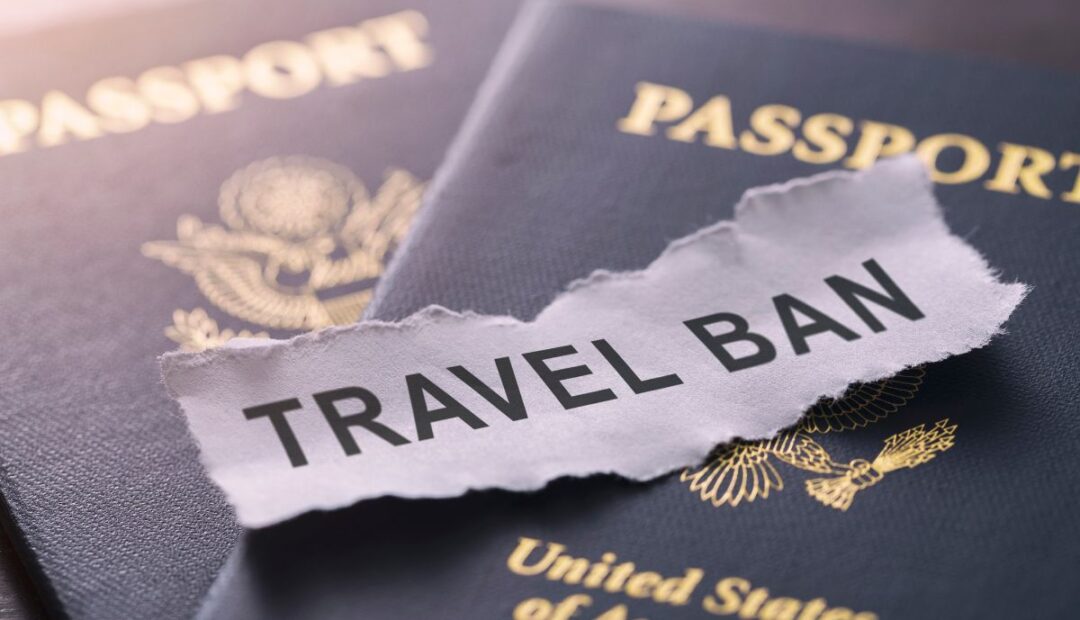House Passes the No Ban Act to Limit Presidential Authority Over Travel Bans
The House of Representatives recently passed the National Origin-Based Antidiscrimination for Nonimmigrants or NO BAN Act, which would significantly restrict the executive authority of the president to issue travel bans based on religion. Any travel bans would also be temporary rather than indefinite or permanent and always subject to congressional oversight. President Biden backs the bill, calling for a need to eliminate religious discrimination through travel bans while still supporting the necessity of banning travel from certain countries, if necessary. However, the bill is likely to meet significant opposition from some members of the Senate.

History of the Trump-Era Travel Bans
The NO BAN Act is in response to former President Trump’s actions in banning entry to citizens in seven Muslim-majority countries in 2017, shortly after he took office. Several court challenges ensued, and Trump amended the ban to add other countries a few different times before creating a ban that courts allowed to stand. The ban resulted in some families being forced to remain separated for four years, in addition to mass protests at airports and some people from these countries enduring hours of questioning when attempting to enter the country. Additionally, the travel bans led to a shortage of doctors in some areas and a significant decline in international students coming to study in the U.S., which was a blow to public and private universities.
Revoking the Travel Ban
On January 20, 2021, his first date in office, President Biden issued more than a dozen executive orders, including one that revoked the travel ban enacted by Executive Order 13780, as well as additional proclamations that extended the ban to even more countries, including some African countries. Nonetheless, despite his quick action to lift the ban, it is only one of many actions necessary to entirely rid the U.S. of the aggressive anti-immigration policies of the Trump administration.
The move freed up U.S. embassies and consulates to resume visa processing in the affected countries, including Burma, Eritrea, Iran, Venezuela, Kyrgyzstan, Libya, North Korea, Somalia, Sudan, Syria, Tanzania, and Yemen. These officials also were instructed to ensure that previous travel bans did not influence the processing of pending visa and waiver applications. However, some international travel advisories do remain in place worldwide, making travel to and from the U.S. from certain countries very challenging or even impossible.
To date, the Biden administration has not proposed any type of expedited waiver process that would allow families in these circumstances to reunite more quickly. There also have been no alternative immigration routes for would-be immigrants who were turned away under one of the discriminatory bans. More than 41,000 people were reportedly denied entry due to the ban.
Biden to Focus on Revised Vetting and Information Sharing as Needed
Although the Trump administration justified the ban on national security grounds, there is no evidence that the travel ban made anything safer for the U.S. Back in 2018, dozens of high-level bipartisan national security experts spoke out against the ban, calling it not only unjust, but likely to make the U.S. less safe. Former Central Intelligence Agency Director Gen. Michael Hayden called the ban an example of “non-fact-based decision-making in what was looking like a nontruth world.”
To that end, Biden has directed the Secretary of State and the Department of Homeland Security to review current vetting procedures for foreign nationals traveling to the U.S., including the current information-sharing processes with other countries. Biden hopes to revise these policies to implement stricter security requirements where needed.
We Are Here to Help You with All Your Immigration Law Needs
The immigration attorneys and staff of Bashyam Global focus all their efforts on providing legal assistance to individuals and businesses with immigration matters. As immigration law’s landscape continues to evolve rapidly, we pride ourselves on keeping up to date with regulation and policy changes as they occur. Together, we can work toward getting the legal relief that you are seeking. Contact our offices today at (919) 833-0840 and schedule an appointment to speak with us about your case.